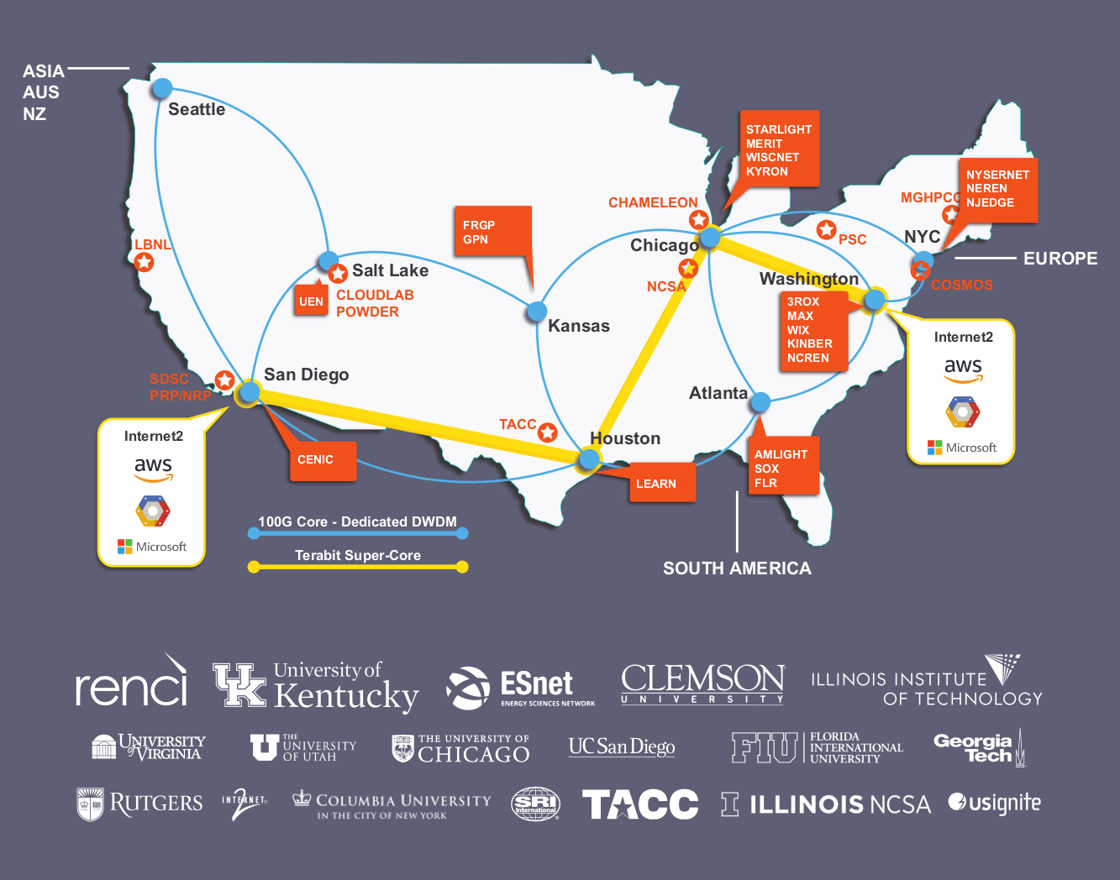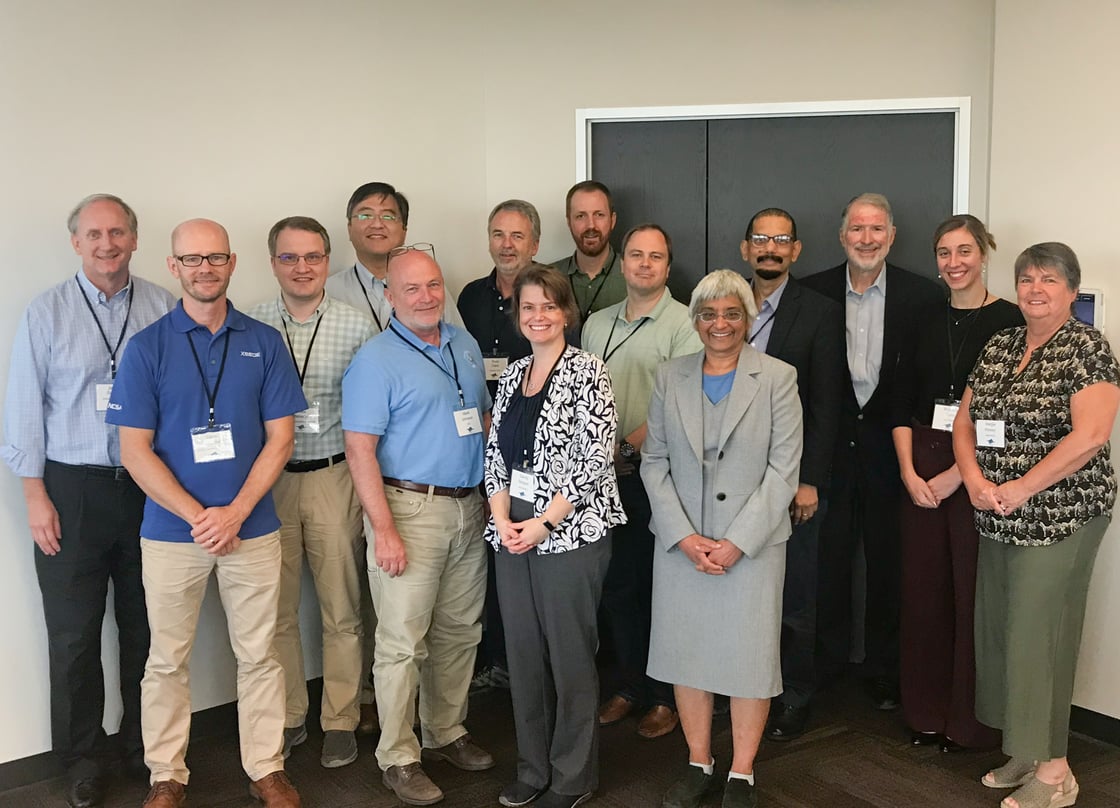
Through your involvement in similar communities, you may be interested in the new $20M networking testbed called FABRIC.
FABRIC is a unique national research infrastructure to enable cutting-edge and exploratory research at-scale in networking, cybersecurity, distributed computing and storage systems, machine learning, and science applications.
To continue receiving emails like this one, make sure to click “Join the Community!” below and fill out the short form.

Want to Learn More?
SC19
Come visit us! We’ll be giving presentations and FABRIC partners will be available to chat at many booths on the show floor. Bookmark our FABRIC @ SC19 page and follow us on Twitter to catch us in Denver!
Get Involved
We’re just getting started, and there will be many opportunities to learn more and to provide input into the system. Sign up to receive email announcements about community workshops, events, and news.
Webinar: What is FABRIC?
Still not quite sure what FABRIC is or why you should be interested in this future resource? Log on with FABRIC leadership on Tuesday Nov. 5 at 2:00 p.m. ET to learn more and discover how you can help shape the future of the Internet.
FABRIC Kick-Off

FABRIC collaborators (pictured above) gathered at RENCI in Chapel Hill, NC on Oct. 1 to officially kick off the work of reimagining the future of the Internet.
Science Design Drivers will be a core part of our work. Learn more about each of them below.

Russell Clark, GT
Smart Sea Level Sensors is one of the application test beds that will be used in validating FABRIC’s effectiveness. Georgia Tech’s emphasis will be on resilience and survivability in order to ensure networks remain active during storms.

Phil Porras, SRI
SRI will focus on leveraging FABRIC’s connection to public clouds to experiment with the design of a Reinforcement Learning Engine that integrates into the networking layer for managing security across clouds.

Malathi Veeraraghavan, UVA
UVA will focus on using FABRIC to test their cross-layer network transport and real-time online cyberattack detection at a much larger scale and higher bandwidth than they have previously been able to access.

Alex Afanasyev, FIU
FIU will focus on evaluating Named Data Networking (NDN) at scale as a native implementation, rather than an overlay on an IP network.
